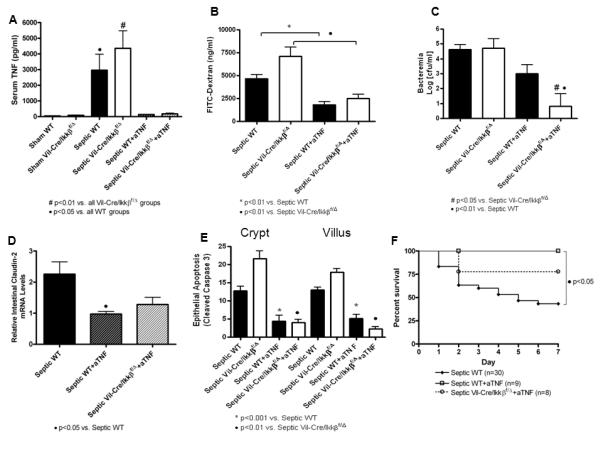Figure 6.

Sepsis-induced alterations in intestinal integrity, permeability and mortality are dependent on TNF. Sepsis-induced increases in serum TNF were completely blocked following TNF neutralization. n=8-18/group (A). Intestinal permeability was lower in septic WT mice following anti-TNF antibody and in septic Vil-Cre/Ikkßf/Δ mice following anti-TNF antibody; however, intestinal permeability was not different between Vil-Cre/Ikkßf/Δ and WT mice following TNF neutralization. n=8-18/group (B). Bacteremia was decreased in septic WT mice following anti-TNF antibody and was further decreased in Vil-Cre/Ikkßf/Δ mice following TNF neutralization. n=8-18/group (C). Claudin-2 expression was lower in septic WT mice following anti-TNF antibody; however, claudin-2 expression was not different between Vil-Cre/Ikkßf/Δ and WT mice following TNF neutralization. n=8-14/group (D). Intestinal epithelial apoptosis was lower in septic WT mice treated with anti-TNF antibody and in septic Vil-Cre/Ikkßf/Δ mice following anti-TNF antibody; however, apoptosis was not different between Vil-Cre/Ikkßf/Δ and WT mice following TNF neutralization. n=5-12/group (E). Anti-TNF treatment significantly improved mortality in both Vil-Cre/Ikkßf/Δ and WT mice compared to untreated groups; however there were no significant differences in the mortality between Vil-Cre/Ikkßf/Δ and WT mice following TNF neutralization (F).
